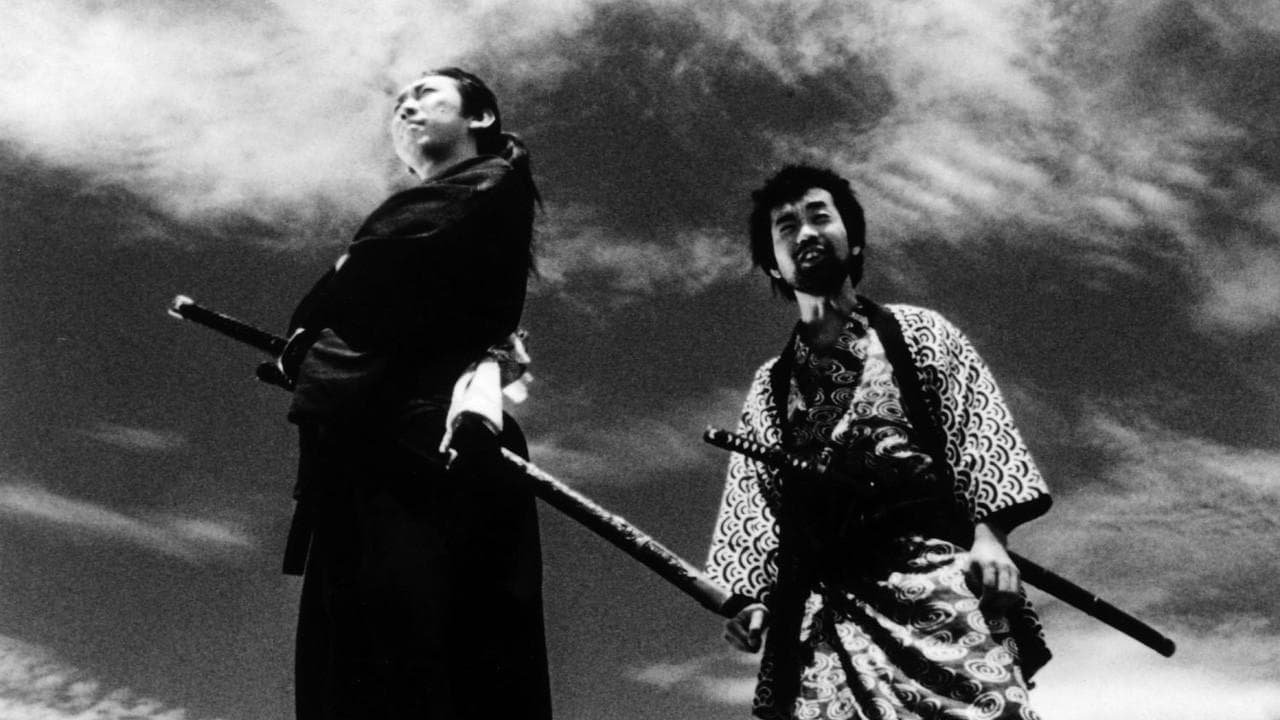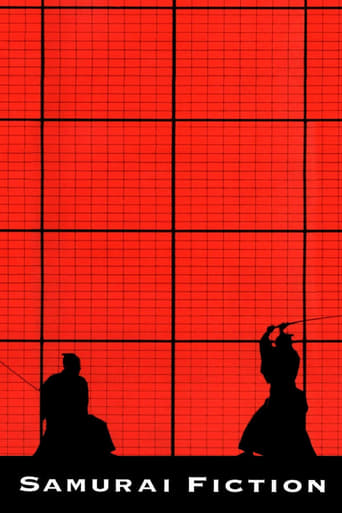

Well Deserved Praise
... View MorePretty Good
... View MoreFrom my favorite movies..
... View MoreExcellent but underrated film
... View MoreWhat makes this film so intriguing? There's so much about it that makes it so fun and yet so good. It pays great homage to its background. It gives us a view of the Zatoichi samurai film http://www.imdb.com/title/tt0056714/?ref_=nv_sr_1) in terms of its slow-paced movement and action as well as the plot and emotion of a Kurosawa film (http://www.imdb.com/name/nm0000041/? ref_=nv_sr_1#director).There are also hints of fantastic direction. The poster features the famous silhouette fight, which went on to inspire another one in Tarantino's Kill Bill (http://www.imdb.com/title/tt0266697/? ref_=nv_sr_1). The other great thing about this film is it's use of fantastic, trendy rock and pop music which really adds something to an artsy samurai movie. It gives a very nice, slick tone to the movie as well.I understand that the film is also called SF volume 1. Why isn't there a volume 2, I wonder?
... View MoreThe title is of course an illusion to Quentin "Pulp Fiction" Tarantino, but the film only shares with Tarantino a decidedly "post-modern" sensibility: for instance geisha in medieval Japan sing American torch songs. Otherwise, the film has much more heart than Tarantino may actually be able to muster.The movie is actually about three samurai - a young man who's out for revenge; a ruthless ronin sword for hire; and an aging warrior in hiding, who regrets ever having used a sword to kill a man.Sounds like pretty heavy stuff; but director Hiroyuki Nakano ( who claims in interview that he wanted to make a "nice, peaceful film") adds touches of humor to almost every scene, as well as some amazingly beautiful cinematography. The film, by the way, is largely in black-and-white, with color used sparingly for emphasis. Although the director got into the business making music videos for MTV-Japan, he carefully avoids the usual choppy editing, rapid scene transitions, and kitschy gloss that mark the MTV style. Instead he seems to draw heavily on Japan's first great post-modern director, Beat Takeshi for influence, and admits to watching Akira Kurosawa's Yojimbo several times while making the film. So the film has a lot of motionless images, as well as scenes done in single long takes or with very pare editing. I don't know if this makes the film nice or peaceful, but it sure does make it easier to watch than those glaring music vids I personally despise.A very well-made entertaining film; the DVD also has a "making-of" documentary disc which I found very informative, and entertaining in itself.
... View MoreI watched this movie, anticipating a reincarnation of Kurosawa samurai movies... Boy i was in for a surprise. This movie is funny, lite on the heart and soul, with a good message. I am a samurai fanatic, so i was disappointed initially, then I started to laugh once i realized that this is another "samurai champloo" kind of thing.Story line was funny, yet it successfully preserves the honor and moral of the samurai. There where few moments of incongruent affect cosed by funny stunts mixed with death (talk about a killing joke eh!).I liked the music of the movie especially the opening theme, however, i don't think samurai sword fights go well with hard metal rock guitars, even in a funny setting.All the actors did a great job conveying their message. The director and the editor had some fabulous shots that make me eager to watch more of their work.Overall, the movie is worth watching and one would enjoy it a lot if he/she has a good background in Japanese culture and their humble beliefs.
... View MoreIn America there must be thousands of Westerns filling up the shelves of many movie studios. The same is true of samurai movies in Japan. It's just a little piece of each culture. Not that it is the same story every time, but people watch them and feel safe to know what is going to happen (a bad guy is going to mess stuff up, there's going to be some good fights, and the good guy is going to win in the end).I saw Samurai Fiction after watching a great deal of 'typical' Japanese samurai movies (most haven't even been released in the US) and felt that the music the (with the 'western style' instruments) was a fresh addition to a long line of movies caught up in the tradition of making samurai movies 'the way one's supposed to.' The director (a former director of MTV videos for Japanese bands) also uses younger actors and rock musicians in leading roles in an attempt to appeal to the younger generations of Japan whose tastes are quickly drifting away from the older samurai generation's.All in all, Samurai Fiction is a fun movie that is easy to watch for those of us that would like a breath of fresh air from the samurai movie scene.
... View More